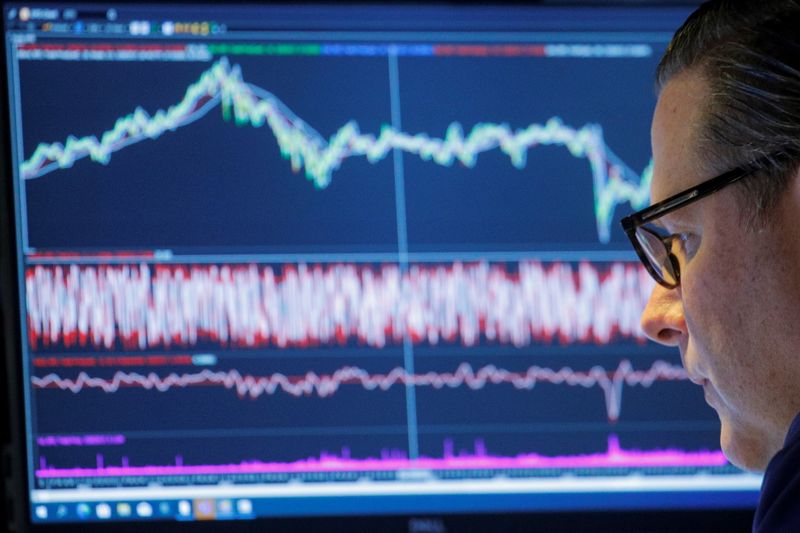By Geoffrey Smith
Investing.com -- The biggest anti-government protests in over 30 years gripped China at the weekend, calling for an end to the country's draconian COVID-19 measures. There was no sign of the authorities moving on Monday in official state media, however. Oil prices hit their lowest in nearly a year in response, and luxury and mining stocks also wobble. Speeches from senior Federal Reserve officials may contain responses to signs of a weak holiday weekend for retail sales, while Christine Lagarde has to manage an increasingly obvious split among her underlings at the European Central Bank. The Bahamas pushes back against the U.S.'s efforts to run FTX's bankruptcy process. Here's what you need to know in financial markets on Monday, 28th November.
1. China COVID protests
China was rocked at the weekend by the biggest anti-government protests since 1989, as citizens in major cities across the country took to the street to protest ongoing COVID-19 lockdown measures.
The protests topped off a week of rising anger, exemplified by violent unrest at Foxconn's (TW:2354) iPhone assembly plant in Zhengzhou. They were notable for featuring, in places, mass calls for the resignation of President Xi Jinping and the end of Communist Party rule. However, most of the protests at the weekend were peaceful and police largely suppressed any repetition of them on Monday.
The government gave no sign on Monday on whether it intended to change its course on the Zero COVID policy or not. Much of the protesters' anger comes from the authorities' reversal of the relaxation they announced in October, in what appears to have been a knee-jerk response to rising case numbers.
2. Fed to take stock of holiday weekend? ECB split in focus
New York Federal Reserve President John Williams and his St. Louis counterpart James Bullard will speak later, and their comments will be notable for any hint of concern for the economy after anecdotal reports of weak retail sales over the holiday weekend.
Analytics firms that track store traffic indicated only a modest increase in footfall from last year, while sales volumes appear to have been down sharply when adjusted for inflation.
In Brussels, European Central Bank President Christine Lagarde will update the European Parliament on the state of the economy amid an increasingly apparent split between two of her most senior subordinates on the ECB board. Isabel Schnabel had warned last week of the continued need to tighten policy, while the bank's chief economist Philip Lane had published a strikingly dovish blog post on Friday that argued against interpreting higher wage rises this year as a sign of higher structural inflation.
3. Stocks set to open lower on China concerns
U.S. stock markets are set to open lower later, reflecting heightened uncertainty about the outlook for China – albeit the risk appears to be of a two-way variety.
While markets tend to dislike uncertainty per se, and certainly won't like the prospect of unrest that could disrupt factory output and export hubs, they also have to acknowledge the risk that Beijing may accept a higher COVID case count as the price of a faster reopening. State media gave no hint of that on Monday, however.
By 06:20 ET (11:20 GMT), Dow Jones futures were down 178 points or 0.5%, while S&P 500 futures were down 0.7%, and Nasdaq 100 futures were down 0.8%.
Stocks likely to be in focus later include Univar (NYSE:UNVR), which is the subject of bid interest from German rival Brenntag (ETR:BNRGn). Also in focus may be Tesla (NASDAQ:TSLA), amid speculation that Beijing may use its leverage to pressure Elon Musk to restrict coverage of the protests on Twitter.
The Dallas Fed's monthly business survey is the only economic data point of note.
4. Bahamas pushes back against U.S. over FTX bankruptcy
The Bahamas authorities pushed back against U.S. attempts to assert jurisdiction over the bankrupt FTX empire of Sam Bankman-Fried.
Efforts by a U.S. bankruptcy court in Delaware to assert control over customer deposits have encountered resistance from the Bahamas, which fears that the Delaware court may try to gain access to the much larger base of non-U.S. customer deposits in order to make whole the creditors of FTX's U.S. operations.
"Any attempt to lay the entirety of this debacle at the feet of the Bahamas, because FTX is headquartered here, would be a gross oversimplification of reality," Attorney-General Ryan Pinder said in a televised address. He blamed the fiasco on wrongdoing by multiple bad actors across FTX's global operations, in contrast to FTX's new CEO John J. Ray, whose comments have focused on the actions of Bankman-Fried and his close associates.
5. Oil hits 2022 low as Chevron gets Venezuela license
Crude oil prices fell to their lowest levels this year as the unrest in China made a sustained rebound in oil demand there appear less likely. The market had already sold off last week on signs of a sharp drop in mobility across major Chinese cities, a consequence not only of official restrictions but also of popular fear of catching the virus in a country of low immunization rates and less effective vaccines.
The market is also absorbing the news that the U.S. has renewed Chevron's (NYSE:CVX) license to pump oil from Venezuela, reversing a years-long ban that aimed to punish the regime of President Nicolás Maduro for his manipulation of elections. The move may ultimately help alleviate a global supply squeeze, although its short-term impact is expected to be extremely limited.
By 06:35 ET (11:35 GMT), U.S. crude futures were down 3.0% at $73.94 a barrel, while Brent crude futures were down 3.1% at $81.13 a barrel.
